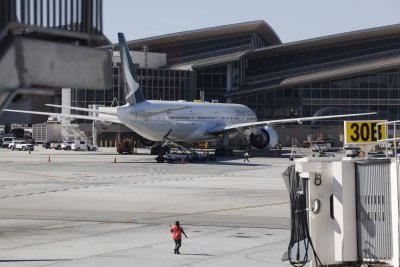
Nov. 1 (UPI) — Federal Aviation Administration officials on Friday night urged Congress to approve government funding as more air traffic controllers call in sick amid the shutdown.
The nation’s nearly 13,000 air traffic controllers and additional Transportation Security Administration agents are deemed essential, but they are not being paid during the government shutdown that started on Oct.1.
Now in its 32nd day on Saturday, the FAA said the strain on unpaid employees is causing many to call in sick due to other obligations, such as supervising children, and out of frustration, The Hill reported.
“A surge in callouts is straining staffing levels at multiple facilities, leading to widespread impacts across the [National Airspace System,” FAA personnel posted on X.
“Half of our Core 30 facilities are experiencing staffing shortages, and nearly 80% of air traffic controllers are absent at New York-area facilities.”
The FAA post said the “shutdown must end” so that air traffic controllers can get paid and to ensure the safety of more than 50,000 daily operations across the country.
When experiencing staffing shortages, the FAA reduces the amount of air traffic to maintain safety, which could cause flight delays or cancellations, the post said.
Such staffing shortages caused delays at airports in Boston, Dallas, Nashville and Newark, N.J., among several others, according to ABC News.
The shutdown is the second-longest in U.S. history, but it is poised to exceed the current record-holder of 35 days from December 2018 to January 2019.
During that shutdown, air traffic controllers again worked without pay until the government reopened and they received back pay.
Air traffic controllers earn a median salary of $150,000 annually, but new hires are paid about $50,000, aviation industry labor expertJake Rosenfeld of Washington University in St. Louis told ABC News.
The Senate has failed 13 times to obtain the 60 votes needed to overcome the Senate’s filibuster rule and fund the federal government while continuing to work on a 2026 fiscal year budget.
The Senate reconvenes on Monday, which is one day short of the record 35-day shutdown.